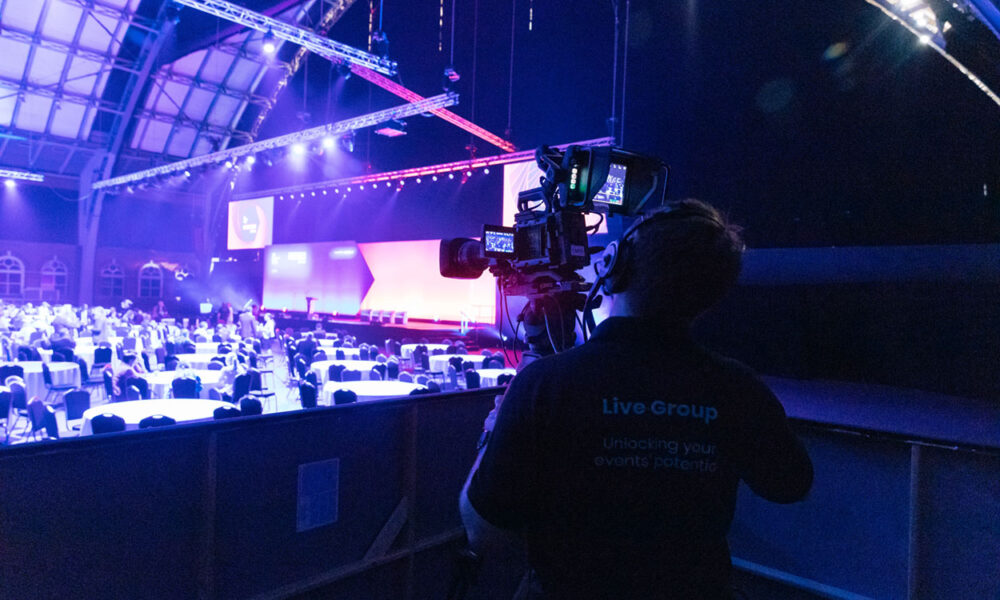In the ever-evolving landscape of events, the rise of hybrid gatherings has become a game-changer. As the world adapts to the possibilities of virtual connectivity, event organisers are redefining the traditional event model to create a seamless blend of both physical and virtual experiences. Reimagining hybrid events opens up a world of opportunities for increased engagement, expanded reach, and innovative event design. Let’s explore how this perfect blend of virtual and physical experiences is shaping the future of events.
1. Bridging the Distance
Hybrid events break down geographical barriers, allowing participants from around the globe to join in real-time. Whether it’s a conference, trade show, or product launch, the virtual component enables a broader audience reach. Attendees who may face travel restrictions or logistical challenges can still actively participate and contribute to the event’s success.
2. Flexibility for Attendees
The hybrid model offers attendees the flexibility to choose their preferred mode of participation. Some may opt for the immersive experience of physically attending the event, while others can engage virtually from the comfort of their homes or offices. This flexibility not only accommodates diverse preferences but also ensures inclusivity, allowing a wider audience to connect with the event content.
3. Enhanced Networking Opportunities
Networking is a cornerstone of successful events, and hybrid models take this to new heights. Virtual platforms enable networking before, during, and after the event, providing opportunities for meaningful connections. From virtual breakout sessions to online networking lounges, attendees can engage with both physical and virtual participants, fostering collaboration and relationship-building.
4. Immersive Virtual Experiences
The virtual component of hybrid events isn’t merely a backup plan; it’s an integral part of the event experience. Virtual attendees can enjoy immersive content, participate in interactive sessions, and explore virtual exhibition spaces. Incorporating augmented reality (AR) and virtual reality (VR) technologies adds a layer of excitement, making the virtual experience as engaging as the physical one.
5. Data-Driven Insights
One of the key advantages of hybrid events is the wealth of data generated from both physical and virtual interactions. Event organisers can gather valuable insights into attendee behaviour, preferences, and engagement metrics. This data-driven approach enables continuous improvement, allowing organisers to refine future events based on real-time feedback and analytics.
6. Dynamic Event Content
Hybrid events provide an opportunity to curate dynamic and diverse content. With physical stages and virtual platforms, organisers can host live and pre-recorded sessions, panel discussions, and interactive workshops. This versatility ensures that attendees, regardless of their chosen mode of participation, have access to a rich and varied programme that suits their interests and learning preferences.
7. Hybrid Sponsorship Opportunities
Sponsors play a crucial role in supporting events, and hybrid models open up new avenues for sponsor engagement. From virtual booths and sponsored sessions to physical brand activations, sponsors can connect with attendees in both realms. This expanded reach enhances the value proposition for sponsors and creates additional revenue streams for event organisers.
8. Sustainable Event Practices
Reducing the carbon footprint of events is an increasingly important consideration. Hybrid events promote sustainability by decreasing the need for extensive travel and lowering the overall environmental impact. This aligns with the growing emphasis on corporate social responsibility and positions hybrid events as a more eco-friendly option for the future.
A New Era of Event Experiences
Reimagining hybrid events marks a significant shift in the way we approach global events management. By seamlessly integrating virtual and physical components, event organisers are creating a more inclusive, flexible, and data-driven approach to event planning. As technology continues to advance and audience expectations evolve, the hybrid model emerges as a powerful strategy for delivering impactful and memorable event experiences in the new era of connectivity. The perfect blend of virtual and physical elements is not just a trend; it’s a transformative force shaping the future of events.





